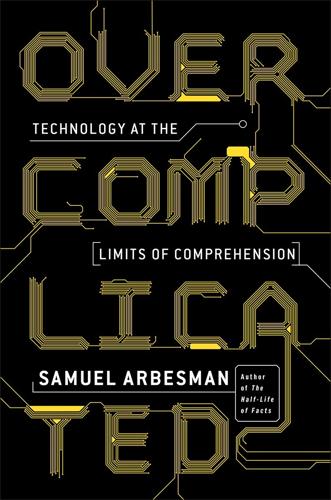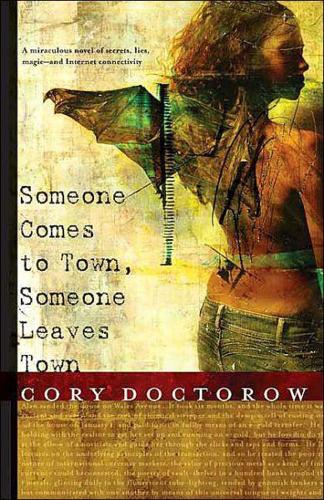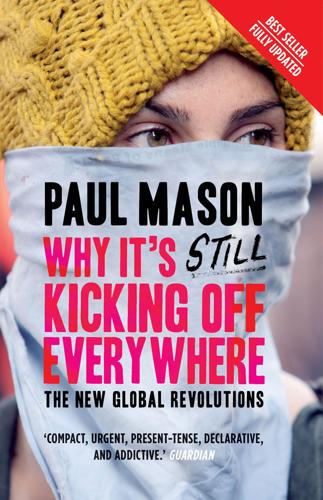
Overcomplicated: Technology at the Limits of Comprehension
by
Samuel Arbesman
Published 18 Jul 2016
We find it in our ecosystems and in the chaos of technology that we rely on every day. We find it in the Greek pantheon, and in many other stories we tell ourselves. Storytelling, in fact, allows us to indulge our desires for either biological or physics thinking. Some stories are finely crafted machines with no extraneous parts; everything fits together. We see this in “Chekhov’s Gun,” dramatist Anton Chekhov’s principle that any element introduced in a story must be crucial to advancing the plot. A loaded rifle introduced early in the first act of a play must go off by the third. On the other hand, there are some stories in which color is added, creating a richness of experience without necessarily moving the plot along.
…
., 38, 59, 93 bugs, in software, see software bugs bureaucracies, growth of, 41 cabinets of curiosities (wunderkammers), 87–88, 140 calendar application, programming of, 51–53 Cambridge, Mass., 101 cancer, 126 Carew, Diana, 46 catastrophes, interactions in, 126 Challenger disaster, 9, 11, 12, 192 Chandra, Vikram, 77 Chaos Monkey, 107, 126 Chekhov, Anton, 129 Chekhov’s Gun, 129 chess, 84 Chiang, Ted, 230 clickstream, 141–42 Clock of the Long Now, The (Brand), 39–40 clouds, 147 Code of Federal Regulations, 41 cognitive processing: of language, 73–74 limitations on, 75–76, 210 nonlinear systems and, 78–79 outliers in, 76–77 working memory and, 74 see also comprehension, human collaboration, specialization and, 91–92 Commodore VIC-20 computer, 160–61 complexity, complex systems: acceptance of, see biological thinking accretion in, 36–43, 51, 62, 65, 191 aesthetics of, 148–49, 156–57 biological systems and, 116–17, 122 buoys as examples of, 14–15, 17 complication vs., 13–15 connectivity in, 14–15 debugging of, 103–4 edge cases in, 53–62, 65, 201, 205 feedback and, 79, 141–45 Gall on, 157–58, 227 hierarchies in, 27, 50–51 human interaction with, 163 infrastructure and, 100–101 inherent vs. accidental, 189 interaction in, 36, 43–51, 62, 65, 146 interconnectivity of, see interconnectivity interpreters of, 166–67, 229 kluges as inevitable in, 34–36, 62–66, 127 in legal systems, 85 and limits of human comprehension, 1–7, 13, 16–17, 66, 92–93 “losing the bubble” and, 70–71, 85 meaning of terms, 13–20 in natural world, 107–10 scientific models as means of understanding, 165–67 specialization and, 85–93 unexpected behavior in, 27, 93, 96–97, 98–99, 192 see also diversity; technological complexity complexity science, 132–38, 160 complication, complexity vs., 13–15 comprehension, human: educability of, 17–18 mystery and, 173–74 overoptimistic view of, 12–13, 152–53, 156 wonder and, 172 see also cognitive processing comprehension, human, limits of, 67, 212 complex systems and, 1–7, 13, 16–17, 66, 92–93 humility as response to, 155–56 interconnectivity and, 78–79 kluges and, 42 legal system and, 22 limitative theorems and, 175 “losing the bubble” in, 70–71, 85 Maimonides on, 152 stock market systems and, 26–27 technological complexity and, 18–29, 69–70, 80–81, 153–54, 169–70, 175–76 unexpected behavior and, 18–22, 96–97, 98 “Computational Biology” (Doyle), 222 computational linguistics, 54–57 computers, computing: complexity of, 3 evolutionary, 82–84, 213 impact on technology of, 3 see also programmers, programming; software concealed electronic complexity, 164 Congress, U.S., 34 Constitution, U.S., 33–34 construction, cost of, 48–50 Cope, David, 168–69, 229–30 corpus, in linguistics, 55–56 counting: cognitive limits on, 75 human vs. computer, 69–70, 97, 209 Cowen, Tyler, 84 Cryptonomicon (Stephenson), 128–29 “Crystalline Structure of Legal Thought, The” (Balkin), 60–61 Curiosity (Ball), 87–88 Dabbler badge, 144–45 dark code, 21–22 Darwin, Charles, 115, 221, 227 Daston, Lorraine, 140–41 data scientists, 143 datasets, massive, 81–82, 104–5, 143 debugging, 103–4 Deep Blue, 84 diffusion-limited aggregation (DLA), 134–35 digital mapping systems, 5, 49, 51 Dijkstra, Edsger, 3, 50–51, 155 “Divers Instances of Peculiarities of Nature, Both in Men and Brutes” (Fairfax), 111–12 diversity, 113–14, 115 see also complexity, complex systems DNA, see genomes Doyle, John, 222 Dreyfus, Hubert, 173 dwarfism, 120 Dyson, Freeman, on unity vs. diversity, 114 Dyson, George, 110 Economist, 41 edge cases, 53–62, 65, 116, 128, 141, 201, 205, 207 unexpected behavior and, 99–100 see also outliers Einstein, Albert, 114 Eisen, Michael, 61 email, evolution of, 32–33 emergence, in complex systems, 27 encryption software, bugs in, 97–98 Enlightenment, 23 Entanglement, Age of, 23–29, 71, 92, 96, 97, 165, 173, 175, 176 symptoms of, 100–102 Environmental Protection Agency, 41 evolution: aesthetics and, 119 of biological systems, 117–20, 122 of genomes, 118, 156 of technological complexity, 127, 137–38 evolutionary computation, 82–84, 213 exceptions, see edge cases; outliers Facebook, 98, 189 failure, cost of, 48–50 Fairfax, Nathanael, 111–12, 113, 140 fear, as response to technological complexity, 5, 7, 154–55, 156, 165 Federal Aviation Administration (FAA), Y2K bug and, 37 feedback, 14–15, 79, 135 Felsenstein, Lee, 21 Fermi, Enrico, 109 Feynman, Richard, 9, 11 field biologists, 122 for complex technologies, 123, 126, 127, 132 financial sector: interaction in, 126 interconnectivity of, 62, 64 see also stock market systems Firthian linguistics, 206 Flash Crash (2010), 25 Fleming, Alexander, 124 Flood, Mark, 61, 85 Foote, Brian, 201 Fortran, 39 fractals, 60, 61, 136 Frederick the Great, king of Prussia, 89 fruit flies, 109–10 “Funes the Memorious” (Borges), 76–77, 131 Galaga, bug in, 95–96, 97, 216–17 Gall, John, 157–58, 167, 227 game theory, 210 garden path sentences, 74–75 generalists, 93 combination of physics and biological thinking in, 142–43, 146 education of, 144, 145 explosion of knowledge and, 142–49 specialists and, 146 as T-shaped individuals, 143–44, 146 see also Renaissance man generalization, in biological thinking, 131–32 genomes, 109, 128 accretion in, 156 evolution of, 118, 156 legacy code (junk) in, 118, 119–20, 222 mutations in, 120 RNAi and, 123–24 Gibson, William, 176 Gingold, Chaim, 162–63 Girl Scouts, 144–45 glitches, see unexpected behavior Gmail, crash of, 103 Gödel, Kurt, 175 “good enough,” 27, 42, 118, 119 Goodenough, Oliver, 61, 85 Google, 32, 59, 98, 104–5 data centers of, 81–82, 103, 189 Google Docs, 32 Google Maps, 205 Google Translate, 57 GOTO command, 44–45, 81 grammar, 54, 57–58 gravitation, Newton’s law of, 113 greeblies, 130–31 Greek philosophy, 138–40, 151 Gresham College, 89 Guide of the Perplexed, The (Maimonides), 151 Haldane, J.

The Uninhabitable Earth: Life After Warming
by
David Wallace-Wells
Published 19 Feb 2019
A rule change to pollution standards for coal producers, proposed by Trump’s EPA in 2018, would kill an additional 1,400 Americans annually, the agency itself acknowledged; globally, pollution kills as many as nine million each year. We live with that pollution, and with those death tolls, and hardly notice them; the curving concrete towers of nuclear plants, by contrast, stand astride the horizon like Chekhov’s proverbial gun. Today, despite a variety of projects aimed at producing cheap nuclear energy, the price of new plants remains high enough that it is hard to make a persuasive argument that more “green” investment be directed toward them rather than installations of wind and solar. But the case for decommissioning and dismantling existing plants is considerably weaker, and yet that is exactly what is happening—from the United States, where both Three Mile Island and Indian Point are being closed down, to Germany, where so much nuclear power has recently been retired that the country is growing its carbon emissions despite a state-of-the-world green energy program.

Someone comes to town, someone leaves town
by
Cory Doctorow
Published 1 Jul 2005
She plumped herself on the cushions and flapped her wings once, softly, another puff of that warm air wafting over him. She picked up the tin robot he'd given her from the coffee table and turned it over in her hands, staring up its skirts at the tuna-fish illustration and the Japanese ideograms. "I had the knife, and I felt like I had to use it. You know Chekhov? 'If a gun is on the mantle in the first act, it must go off in the third.' I write one-act plays. Wrote. But it seemed to me that the knife had been in act one, when Krishna dragged me into the bathroom. "Or maybe act one was when he brought it home, after I showed him my wings. "And act two had been my night in the park.

Asymmetry
by
Lisa Halliday
Published 6 Feb 2018
For her part, Alice was starting to consider really rather seriously whether a former choirgirl from Massachusetts might be capable of conjuring the consciousness of a Muslim man, when Ezra turned back to her and said: “Don’t worry about importance. Importance comes from doing it well. Just remember what Chekhov said: ‘If there’s a gun hanging on the wall in the first chapter, in a later chapter it must go off.’ ” Alice wiped her hands and stood to throw her napkin away. “If there’s a defibrillator hanging on the wall in the first chapter, in a later chapter must it go off?” When she’d returned to him, Gabriela was there, holding his scarf and helping him to his feet; the sun had disappeared behind the high-rises on Columbus and all around them paces quickened in the sudden shade.

Why It's Still Kicking Off Everywhere: The New Global Revolutions
by
Paul Mason
Published 30 Sep 2013
Because possibly, maybe, the question should be asked: maybe they’re tired of evolution, and they are waiting for revolution.8 At the end of the broadcast Beck called for a return to civilized discourse. But he had just accused the liberal wing of US politics of contemplating armed struggle. The problem is, as Chekhov once said, if a gun appears in Act One, then before the end of the play somebody is going to get shot. On 8 January 2011, a gunman in Tucson, Arizona, maimed the Democratic senator Gabrielle Giffords and killed six bystanders. Giffords had been targeted in one of Palin’s cross hairs. The event, though essentially the action of a lunatic, was a wake-up call.

Homo Deus: A Brief History of Tomorrow
by
Yuval Noah Harari
Published 1 Mar 2015
It is highly likely that networks controlling vital infrastructure facilities in the USA and many other countries are already crammed with such codes). However, we should not confuse ability with motivation. Though cyber warfare introduces new means of destruction, it doesn’t necessarily add new incentives to use them. Over the last seventy years humankind has broken not only the Law of the Jungle, but also the Chekhov Law. Anton Chekhov famously said that a gun appearing in the first act of a play will inevitably be fired in the third. Throughout history, if kings and emperors acquired some new weapon, sooner or later they were tempted to use it. Since 1945, however, humankind has learned to resist this temptation. The gun that appeared in the first act of the Cold War was never fired.